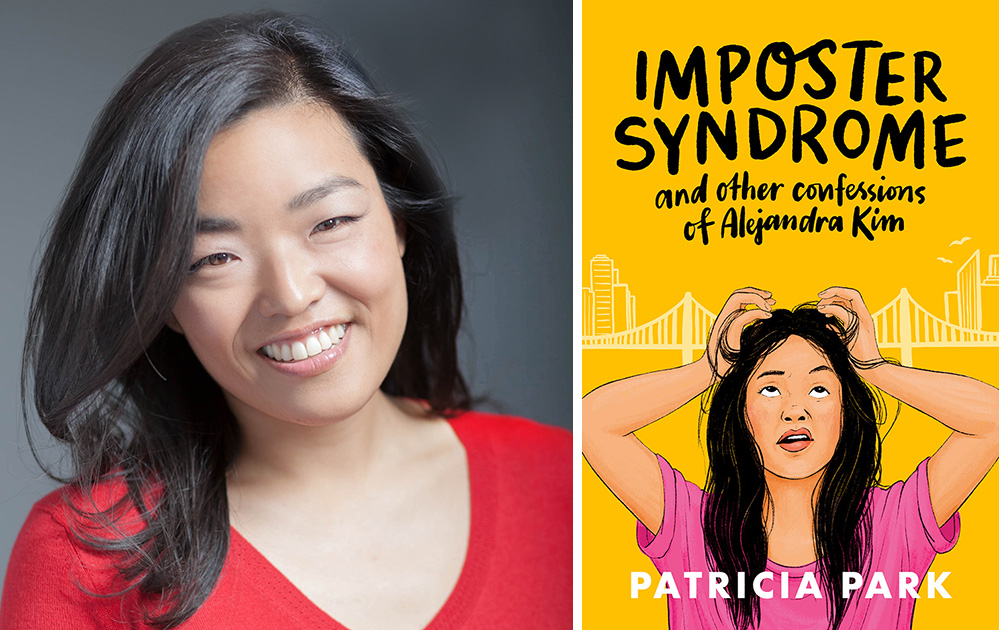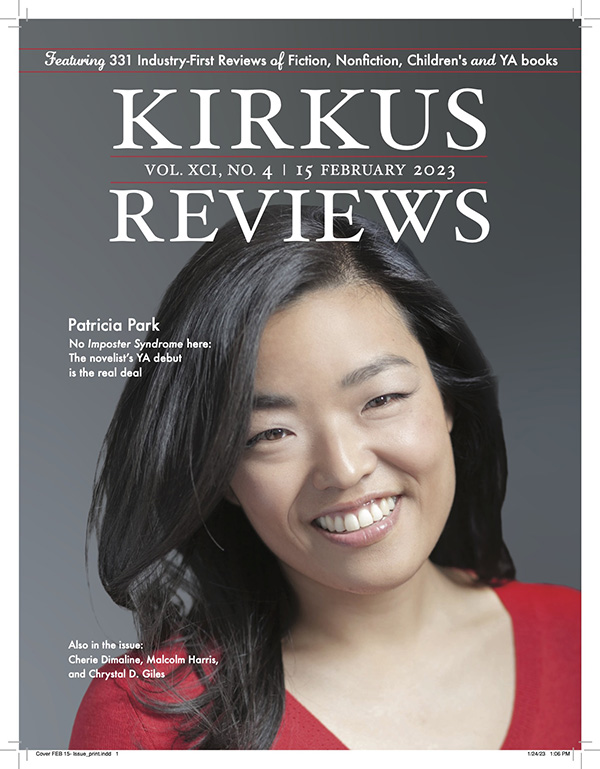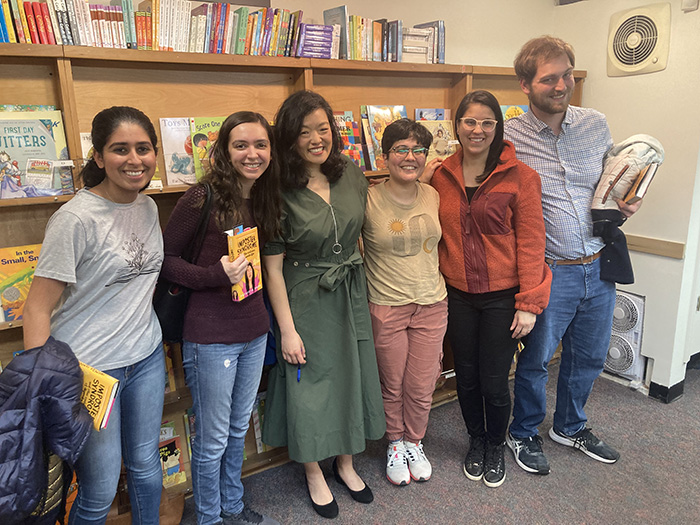Award-Winning Author Patricia Park Talks about “Imposter Syndrome”
 Assistant Professor of Literature Patricia Park has just published her first young adult novel to glowing reviews. Imposter Syndrome & Other Confessions of Alejandra Kim (Crown Books) has been described as “Hilarious, whip-smart, & refreshingly honest,” (Brendan Kiely, NYT bestselling co-author of All American Boys) and “brimming with insights while being un-put-downable and just plain fun. Simply brilliant!” (David Yoon, NYT bestselling author of Frankly in Love).
Assistant Professor of Literature Patricia Park has just published her first young adult novel to glowing reviews. Imposter Syndrome & Other Confessions of Alejandra Kim (Crown Books) has been described as “Hilarious, whip-smart, & refreshingly honest,” (Brendan Kiely, NYT bestselling co-author of All American Boys) and “brimming with insights while being un-put-downable and just plain fun. Simply brilliant!” (David Yoon, NYT bestselling author of Frankly in Love).
Park is also the author of the acclaimed adult novel Re Jane, named Editors' Choice by the New York Times Book Review; Best Books of 2015 by American Library Association; an Oprah Magazine pick; NPR "Fresh Air" pick; and more. She has written for The New Yorker, New York Times, Guardian, Salon, and others.
We sat down with Park to talk about what it’s like to write a novel about today’s teen experience, how her own adolescence shaped the novel, and of course, the universal feelings of not fitting in and “imposter syndrome.”
Q. Imposter Syndrome is your first young adult book. Why did you choose to focus on young adults, and how was the process different from writing novels for general audiences?
What I love about YA is the honest, no BS voice, and the immediacy of the experience. Things are unfolding fast and furious for teen protagonists; they’re processing their feelings in real time. Versus in an adult novel where the adult narration is often looking back on a teen experience, with the benefit of hindsight.
I’m excited to pilot our first YA offerings in our MFA Program in Creative Writing. I’m the only faculty who both writes and teaches YA, and I was inspired by our AU students to explore the genre. In class, we talk about craft decisions like POV, retrospective narration, character development, tone, diction, and syntax choices, etc. that make a work YA. It’s brought a lot of clarity to those looking to write YA vs adult lit with teen characters.
Q. Identity and "fitting in" are big themes in Imposter Syndrome. Why do you think they are so important to young people in today's world?
Imposter syndrome is, sadly, trending. We all know that universal feeling of not fitting in, of thinking we’re inadequate and don’t deserve our seat at the table. I believe we achieve the universal through the specific experience, which I try to show through Alejandra’s story. Ale is a scholarship student from Queens at Quaker Oats Prep (I kid you not!), and she’s constantly code-switching between her working-class neighborhood and the academic PC-speak of her “woke”—or “performatively woke”—classmates. It’s exhausting, and Ale’s imposter syndrome is raging.

Q. The book has received rave reviews, and critics love your heroine Ale: “a thoroughly appealing protagonist, managing to be wry and vulnerable at once” (Kirkus, starred review); “an engaging, charming young woman you’ll be rooting for” (Benjamin Dreyer, New York Times bestselling author).
How did you develop Ale’s character—did you draw on your own experiences?
Aw, thank you! My imposter syndrome’s still not letting me process this moment! When I crafted Alejandra, I was thinking a lot about my transition as a kid from Queens, NY to Swarthmore, an elite Quaker small liberal arts college. When I got to Swat, I felt like a foreigner arriving on a foreign campus. My classmates spoke polished, academic speak—going on for paragraphs about the simplest things. Back in Queens, time is money—chop chop!—so we talk and act with a clipped efficiency. I don’t even speak the same first language as my parents, so language was about basic communication. Talk was a luxury and privilege I couldn’t take for granted. Like Ale, my imposter syndrome was at an all-time high.
Q. Maria Myung-ok Lee described Imposter Syndrome as “a love letter to the scrappy corners of immigrant New York.” You grew up in New York—is this your love letter of sorts?
My homeland of Queens has always been the scrappy borough with a PR problem. Our literary legacy is what F. Scott Fitzgerald calls “the valley of ashes.” Queens is a literal gas station pitstop in Gatsby. Yet Queens is the most ethnically diverse place in the world, with over 300 languages spoken. Our stories remain overlooked and untold; I want to change that.

Q. How have your writing students reacted to the novel, and have they shown interest in writing for young adult audiences too?
I’m forcing my students to read Imposter Syndrome next month! Lol. I’m sharing my blooper reels with them, so they can see all my missteps on the path to publication and learn what not to do. But seriously, my students at AU inspire me every day. In fact, that’s how I came to YA. Many of them were interested in reading and writing the genre, and as an educator, it was my responsibility to figure out what they were trying to do and teach it. I started with their recs and fell down the rabbit hole—which led me to today. I’m so grateful.
